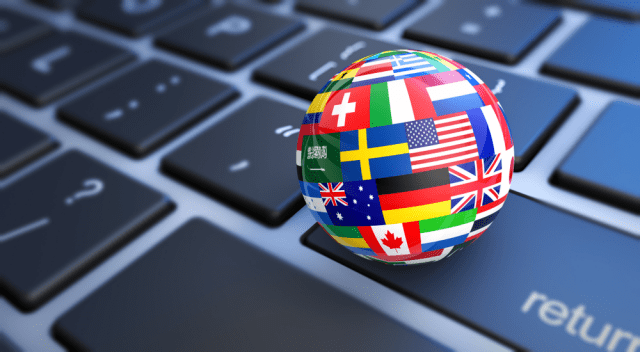
If a company only serves domestic customers, it only needs to operate in one language, right?
Wrong. This is a common misconception. A business that assumes this could be missing out on connecting with a wide range of customers, according to Tomedes, a translation agency with clients around the globe.
Professional translation services can deliver multiple benefits, including a broader customer base, a better company reputation, and larger profits. Let’s look at a couple of examples from around the world.
Using Translation to Connect with Multilingual Domestic Customers

Over in the US, one might assume that a business would only need to deliver its products and services in English. However, the Migration Policy Institute reports that 22% of the US population doesn’t speak English at home.
Those businesses that translate Spanish/English, therefore, have the potential to reach 13% of the US population who speak Spanish as a first language. That’s 41 million potential additional customers, all for the price of a Spanish translator!
India provides another example of the value of local businesses translating their products and services into other languages. The country is home to over 20 major languages, while regional dialects number over 700.
There are over a million people who speak regional languages instead of Hindi and a dozen different written scripts. A local business that tries to court only Hindi-speaking customers, therefore, has huge potential to miss out on large numbers of customers.
Why use translation services, though, if the customers in the local area speak more than one language, including the language in which the business currently operates? Sticking with the US Spanish/English example above, it’s important to recognize the sense of comfort and reassurance that shopping in one’s native language can deliver.
Given the choice, many shoppers will opt to patronize stores where they can shop in their mother tongue. The multilingual definition may refer to the use of several languages, but it doesn’t mean that the speaker doesn’t have a preference if given a choice.
This is why the biggest companies in the world deliver their products and services in so many languages. Doing so caters to the mindset of their customers and makes their businesses accessible to a wider group of people. And that, ultimately, means the chance of greater revenue.
What You Should Know About Translation Services

If your business is one of those that currently delivers services in only one language, it could well be time to seek the services of a professional translator. However, there’s plenty to consider before you get started:
- Should you rely on machine translation?
- What are the localization services?
- Can you use the same translator to translate (for example) Spanish to English as you used to translate English to Spanish?
Let’s look at each of these in turn.
Can You Rely on Google Translate for Business Translation?
In a word, no. Google Translate is a powerful machine language system, but it can’t match the standards delivered by professional translation services (not yet, anyway). It could save your business money on the cost of the translation, but then lose a great deal more due to your poor wording leading customers to struggle to trust your company’s commitment to quality.
If money is tight, a hybrid solution may be best. You can use Google Translate (or similar) and then pay for professional post-editing machine translation services. Your human translator will not only turn machine English into proper English but will also take into account cultural and social nuances.
This means that the final copy won’t include any inappropriate words or phrases that could backfire. Accounting for such cultural nuances raises the question of localization, so let’s consider that next.
What Is Localization? 
localization services shape copy to ensure that it dovetails with the target audience’s culture. They factor in everything from cultural, social, religious and political considerations to practical details such as how to format currencies and measurements.
Your translation company should be able to provide expert localization services. If it doesn’t provide both translation and localization services, it may be worth shopping around until you find a company that does. Website localization is the most commonly sought-after form of localization, but everything from marketing materials to apps can also benefit from this process.
Using a professional localization service can mean that your target audience never even realizes that what they are reading was originally written in another language. Again, this plays into shoppers’ sense of reassurance at making purchases in their own language – something to which the big players are already wise.
Translators and Language Pairings
When using a translator, it’s always best to opt for a native speaker of the target language. As such, if you need to translate Spanish to English, choose an English speaker. For the reverse, opt for a native Spanish speaker. There are exceptions but using a native speaker of the target language usually results in higher quality copy, so this is well worth bearing in mind when your company comes to hire a translator.
Who Needs Professional Translation Services? 
If you’re looking to make the biggest success possible out of your business, and you live in a country where the population speaks more than one language, then you’re likely to need a professional translation service. Translating your products and services into other languages can maximize your local business’ income by enabling it to connect with far more customers.
It’s not just the language services industry that believes this to be the case – a large number of independent news sites and marketing professionals have spoken out over the years about the value of reaching out to customers in their native language. Doing so fosters greater connections and can lead to enhanced customer loyalty, better brand reputation and healthier profits.
In our globalized digital economy, even home businesses with no brick-and-mortar locations can benefit from competing in multilingual domestic business environments by using translation services. Not only that, but the use of a translator may even open the doors to trading internationally, providing local businesses with a huge marketplace in which to ply their wares.








